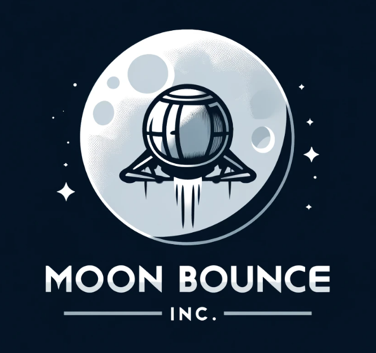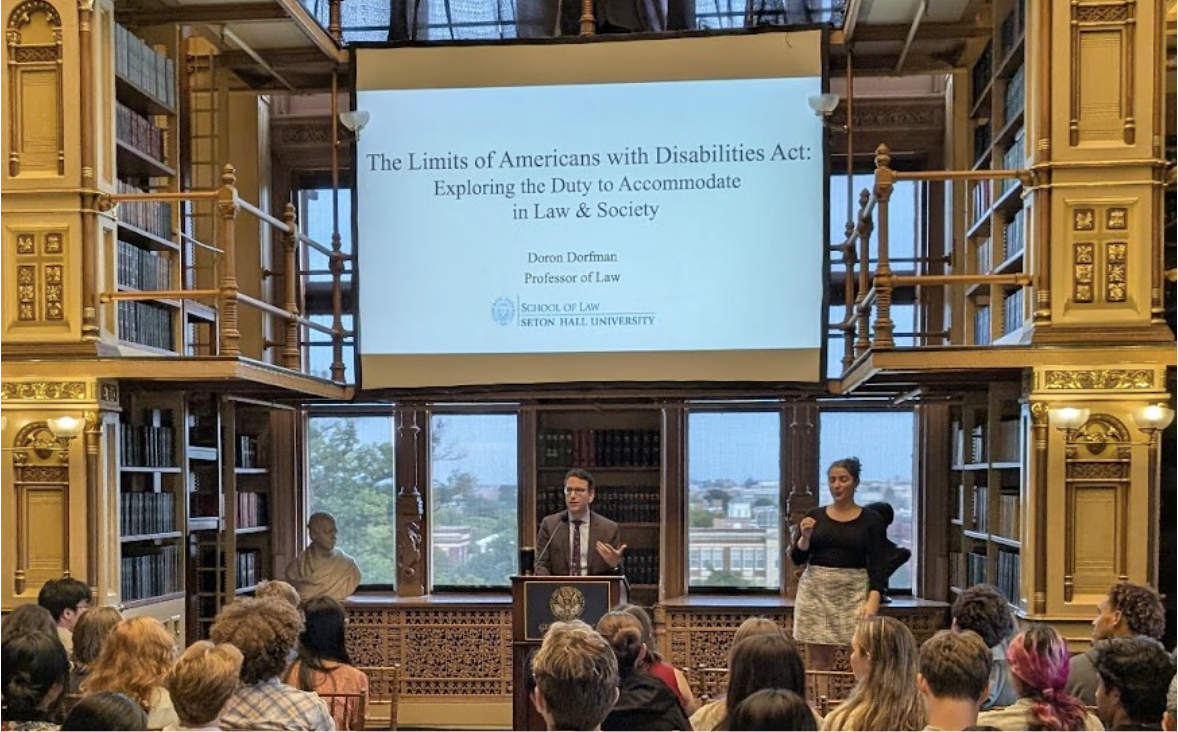Eight members of the Georgetown University Space Initiative (GUSI), a student-run organization that brings together students passionate about space exploration and innovation, traveled to Denver for SpaceVision 2024, a conference hosted by the Students for Exploration and Development of Space (SEDS-USA) from Oct. 3-5. Out of the seven teams from different universities that competed in the conference’s business pitch competition, GUSI secured second place, winning a $500 prize.
The four GUSI members that participated in the competition were tasked with creating a business idea that incorporated the cislunar economy, or the area between the moon and Earth. They impressed the judges with their pitch for MoonBounce Inc., a cislunar distribution company that would create necessary infrastructure to transport goods on the moon.
According to GUSI business team leader Ben Bliss (MSB ’27), the goal of the hypothetical company is to make the lunar economy more viable by improving transportation and distribution methods.
“If you think about a strong lunar economy, you need strong distribution from one site to another on the moon; you can’t deliver everything from terrestrial payloads,” Bliss told The Hoya. “Our product was moon bouncers, so essentially lunar hoppers, which would be like suborbital medium-distance, rocket-boosted transportation vehicles that would go across a network of blast pads that would act as a distribution channel on the moon.”
Despite receiving the prompt a mere 24 hours before the competition, Bliss, along with Julen Payne (MSB ’28), Shuai Li (CAS ’27), and Nico Baumann (CAS ’27), all members of GUSI’s commercial team, worked hard to polish their 10-minute presentation as much as possible.
“We went into [the competition] still practicing right until the last minute because we had finished the deck at 2:30 a.m. and had spent all morning practicing,” Bliss said. “We were confident and really proud of our work. It was fun.”
In addition to the business pitch competition, SpaceVision hosted panels and speaker events featuring high-profile representatives in space technology, defense and government organizations, such as NASA, Lockheed Martin, and the National Oceanic and Atmospheric Administration’s Office of Space Commerce. The conference also provided a unique opportunity to connect with hundreds of fellow undergraduates interested in space.
Attending such conferences serves as an incredible networking opportunity, according to attendee Anjan Balakrishnan (SFS ’27).
“GUSI has been an incredibly productive and successful club in the sense that it has genuinely changed a lot of people’s career trajectories, and it’s one of the reasons why our club decides to attend this kind of serious networking conference, because we went there and we met rocket scientists, aerospace and industrial engineers and CEOs from all over the country,” Balakrishnan told The Hoya.
At the SpaceVision conference, Balakrishnan was elected as the Chairman of the Council of Chapters of SEDS-USA, a position that will enable him to found new university chapters and further develop those that require additional mentorship and funding.
“I’m basically the point of contact for everyone, all individual SEDS-USA chapters, for any issue that they might have,” Balakrishnan said. “I think obviously this is way too large a responsibility for one person to have, since we’re an organization of about 110 chapters and more than 10,000 kids. A big part of my push when I ran was to create a lot more support systems through 11 regional boards or regional chairs, which will be the point of contact for 10 to 11 chapters.”
Because SEDS-USA is largely an aerospace engineering organization, GUSI co-President Owen Chbani (SFS ’25) said that Georgetown’s strengths in policy and business will enhance and diversify the knowledge base of the collective organization.
“We want to have more of a role in the national organization, SEDS-USA. They coordinate a lot of student outreach and activities, and they make space policy and business a key part of that. So it’s not just engineering, but it’s interdisciplinary,” Chbani told The Hoya. “Then you’re not just building all these things like rockets, but you’re understanding how they fit into broader society, broader politics, so you’re developing these technologies in a sustainable way that makes sense with the rest of society.”
GUSI has approximately 60 members and hosts weekly speaker events and a mentorship program that connects students with professionals in the aerospace industry. The club is separated into three teams: The commercial team focuses on aerospace- and defense-related stock and business pitching, the policy team engages in advocacy work for space policy priorities and the science team builds weather balloons and other technology related to climate and sustainability.
Despite only being founded in 2019, GUSI has already made its mark on the Georgetown community and hopes to encourage members to become leaders in the space industry, Balakrishnan emphasized.
“GUSI, young as it may be, is essentially a pre-professional space industry organization,” Balakrishnan said. “I think a big reason why we encourage kids to get into this industry is not just because we do it, but because we think there’s a massive opportunity here to write policy in an area where people don’t even understand what that policy will look like, and there’s a chance for people to basically become the first movers in the space industry.”




